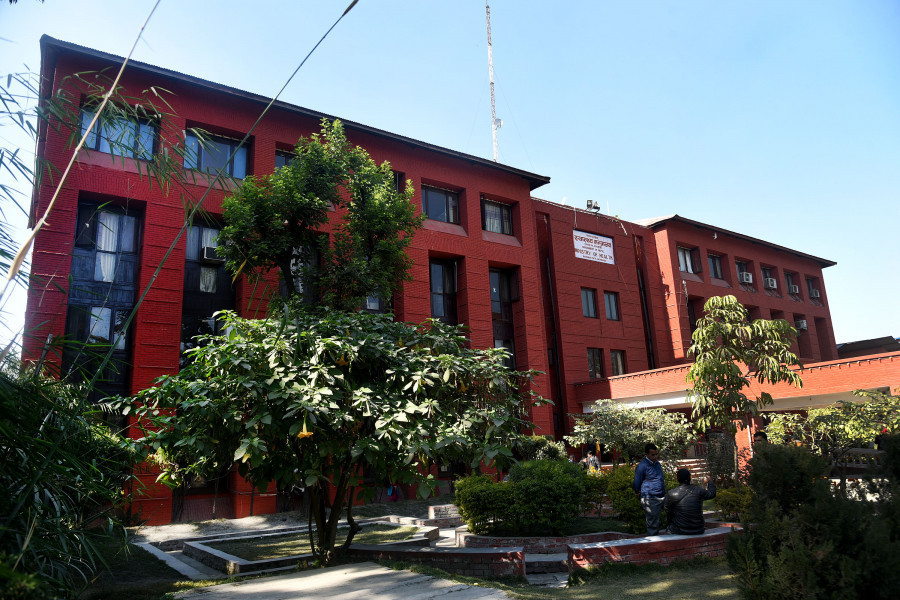Health
Ministry fails to operate suicide prevention hotline
According to government data, at least 17 people commit suicide every day.
Arjun Poudel
Suicide prevention hotline set up some four months ago to lessen growing incidents of suicide in the country has yet come into operation due to a lack of staffers.
Some deaths from suicide could have been prevented had the service come into operation, according to mental health experts.
“Due to the lack of staff to respond to the calls, we have not been able to provide the service,” Dr Basudev Karki, a consultant psychiatrist at the Nepal Mental Hospital, told the Post. “We have drawn the attention of officials at the Health Ministry about the problems to bring the service into operation.”
The Ministry of Health and Population had decided to set up the hotline in June last year and launched the service in September. The responsibility to run the services was given to Nepal Mental Hospital, without providing it the human and financial resources.
“Officials at the Health Ministry are aware of the problems,” added Karki. “We are told that the ministry is working to arrange for the budget and human resources.”
According to government data, at least 17 people commit suicide every day.
Sixteen people took their own lives in a day in the fiscal year 2018-019, according to Dr Phanindra Prasad Baral, chief of the Non-communicable Disease and Mental Health section at the Epidemiology and Disease Control Division.
“We do not have data on suicides for this fiscal year but the ongoing pandemic has increased the incidents,” said Baral. “We had analysed the suicide data after the nationwide lockdown enforced on March 24, which shows an increasing trend.”
Due to the prolonged pandemic, a lot of people got infected with the coronavirus, hundreds of people have lost their relatives and thousands have lost their jobs, incurred losses in business and faced other problems. Some people have been struggling to clear debt or installments of financial institutions. Doctors say that an overall increase in economic burden is leading to a rise in anxiety, stress and depression.
“Those who cannot cope up the stress choose to harm themselves,” Baral added. “Suicide prevention hotline service could be effective, as international studies have shown, to prevent some deaths by counselling the people who are fed up with life for various reasons.”
According to clinical psychiatrists, even severely depressed people can change their mind if they get proper counselling on time. They say that the impulse to kill oneself does not last long and many people try to get help before choosing to end life.
According to Baral, over 4,600 people terminated their lives in the last nine months since the nationwide lockdown was imposed.
“More than two fold deaths are responsible for suicide than coronavirus infection,” Baral added.
As of Saturday, 1,870 people have died of coronavirus infection throughout the country. So far 261,438 people tested positive to coronavirus including 419 in the last 24 hours.
A study carried out by the Nepal Health Research Council before the start of the pandemic shows that more than 10 percent of the adult population had mental disorders in their lifetime and 4.3 percent currently had some sort of mental disorder.
The prevalence of suicidality including current suicidal thoughts, lifetime suicidal attempts and future likelihood of suicidal thoughts was found to be in the 7.2 percent population.
“Several international studies have shown that the ongoing pandemic has increased mental health problems,” Dr Megnath Dhimal, chief researcher at the Nepal Mental Health Council, told the Post. “The problems might have increased in our country as well. Authorities concerned should introduce programmes to address growing mental health problems and suicide incidents eacebarated by the pandemic.”
The World Health Organization says 800,000 people commit suicide each year across the globe and 16 million people attempt to kill self.
The UN body says one in four people in the world had been affected by mental or neurological disorders at some point of their lives and around 450 million people currently suffer from such conditions, placing mental disorders among the leading causes of ill health and disability worldwide.
Meanwhile, the Health Ministry said that it has forwarded files to hire staff in contact to the Ministry of Finance and Ministry of Federal Affairs and General Administration to bring the suicide prevention hotline into operation.
“As per my information, the files have been forwarded to the concerned ministries for approval,” Dr Samir Kumar Adhikari, joint spokesperson for the Health Ministry, told the Post.
Globally, telephone crisis helplines have become integral parts of suicide prevention strategies. Along with being accessible, crisis helplines provide timely and anonymous advice to callers and are effective in deterring suicidal thoughts.
According to doctors, the crisis helpline is therapy-based, where the doctor offers empathic listening to individuals who are having suicidal thoughts.
There are a number of helplines, run by both governmental and non-governmental agencies, that provide mental health counseling over the phone.
The Tribhuvan University Teaching Hospital (TUTH) suicide hotline (9840021600) and Patan Hospital crisis helpline for suicide prevention (9813476123) operate 24 hours. The Transcultural Psychosocial Organization (16600102005) provides helpline services between Monday to Friday from 9:30 am to 4:30 pm.




 9.12°C Kathmandu
9.12°C Kathmandu














